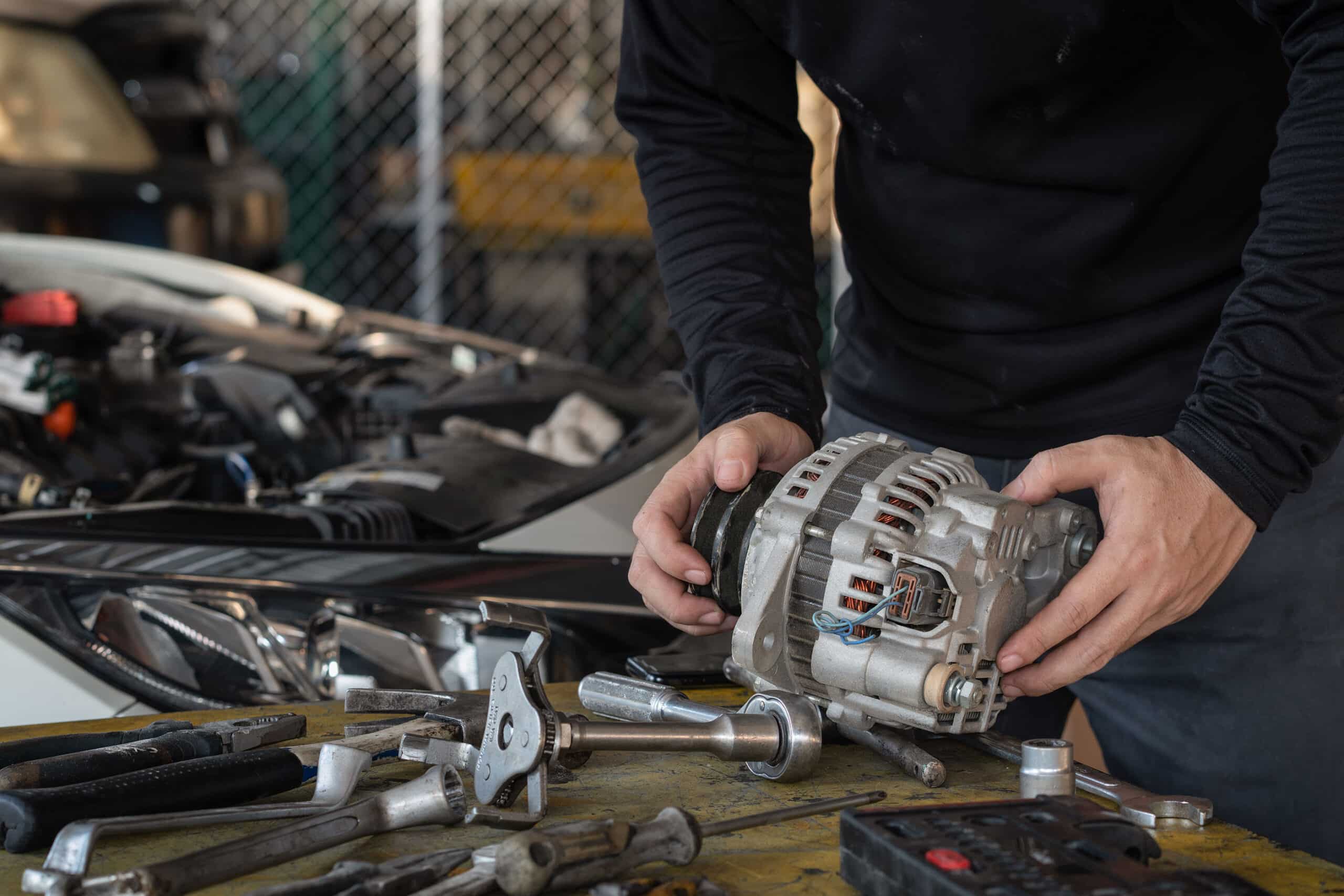
Alternator Replacement Costs: What You Need To Know
Imagine waking up on a brisk morning, ready for a busy day ahead. You turn the key in the ignition, but instead of the engine roaring to life, there’s just a series of weak clicks or complete silence. This moment of frustration is often a tell-tale sign of a dead battery, which can be directly linked to a failing alternator. This scenario highlights the alternator’s critical role in recharging the car’s battery while the engine is running. Understanding this connection and the costs involved in replacing an alternator becomes crucial for every car owner who relies on their vehicle for daily activities.
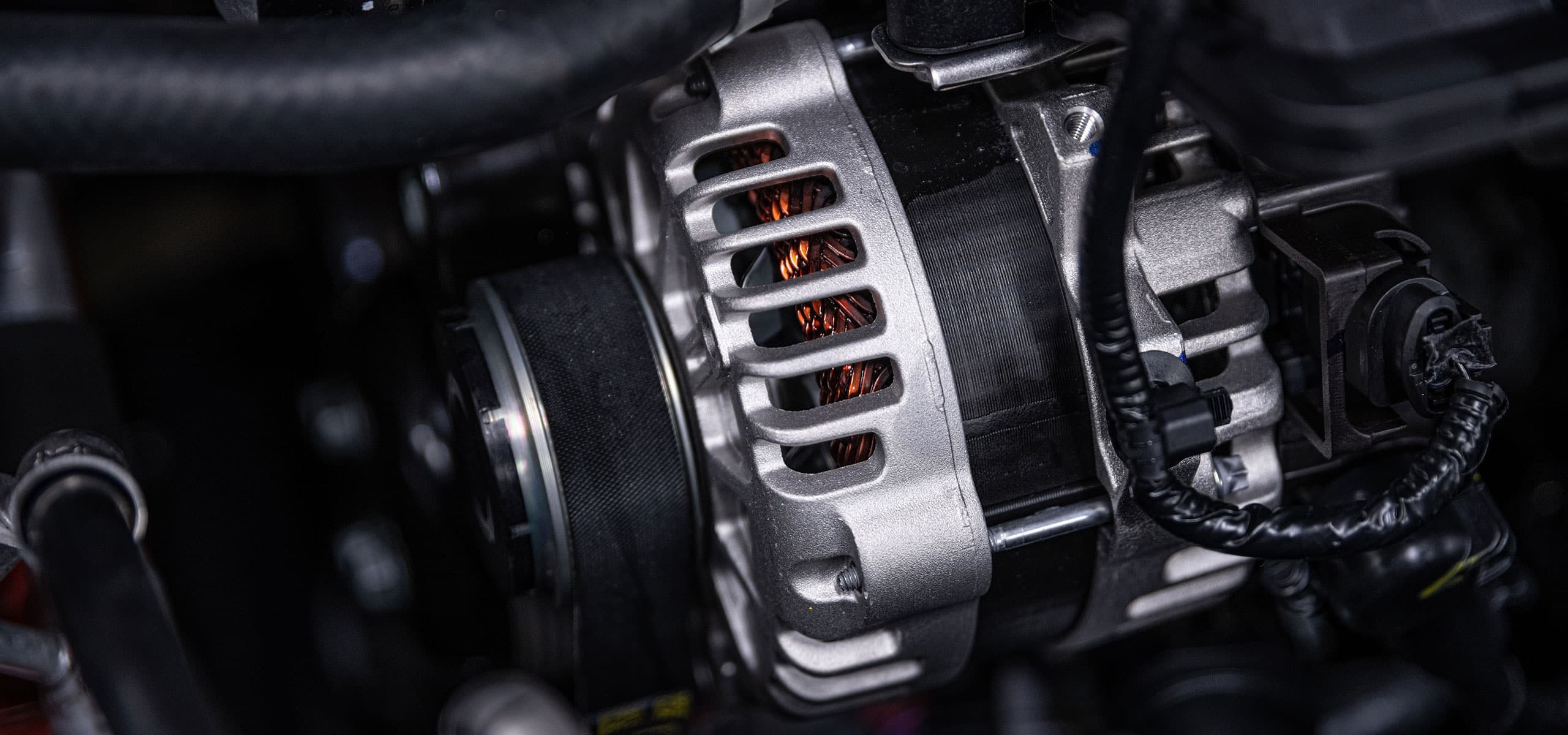
Understanding Alternators:
At the heart of your vehicle’s electrical system lies the alternator, a crucial component working tirelessly under the hood. Its primary role is to generate electrical power for various systems while the engine is operating, and importantly, to charge the vehicle’s battery. This ensures the battery remains charged to start the engine and power electrical components like headlights and the radio when the engine is off.

Common Signs Of Alternator Failure
Your car’s alternator is like its silent powerhouse and when it starts to fail, it sends out distinct distress signals. Recognising these signs early is crucial in preventing the inconvenience of sudden breakdowns and costly emergency repairs. Let’s dive deeper into these indicators:
- Dimming or Flickering Lights: This indicates inconsistent power output from the alternator.
- Dead Battery and Starting Issues: While a dead battery doesn’t always indicate a failing alternator, it’s a common symptom. If your car struggles to start or the battery frequently dies, it’s worth checking the alternator.
- Unusual Noises: Sounds like squealing or groaning from the engine bay can be a sign of bearing issues within the alternator.
- Burning Smell: A severe overheating alternator might emit a smell of melting plastic or rubber. Any burning odour from your vehicle is a serious concern and warrants immediate attention.
- Diminished Electrical Performance: If electrical components like headlights, stereo, or electric windows perform inconsistently, especially at idle, it could indicate the alternator is not providing sufficient power.
- Dashboard Warning Lights: Persistent dashboard lights, particularly the ‘check engine’, battery warning, or an ‘ALT’ light, are clear indicators to have your alternator checked.
- Vehicle Stalling or Limp Mode: A struggling alternator can affect your car’s fuel injection system, leading to stalling or reduced performance, known as ‘limp mode’.
Recognising the signs of potential alternator failure early can help prevent the inconvenience of unexpected breakdowns and potentially costly emergency repairs.
Factors Affecting Replacement Costs
When it comes to replacing an alternator, the cost is influenced by several straightforward factors. Firstly, your vehicle’s make and model can affect the price, as some cars require more expensive or complex alternators. Secondly, the choice of alternator – whether remanufactured, reconditioned, or brand new – impacts the cost. Finally, the labour involved, which can vary depending on the ease of installation in your specific vehicle, also plays a role. Understanding these factors is essential for any car owner to make an informed decision about alternator replacement, balancing cost with reliability and vehicle performance.
Vehicle Make and Model: The make and model of your vehicle significantly impact the cost. Luxury or performance vehicles often require more expensive alternators compared to standard models. Additionally, some makes and models may have more complex installation processes, influencing the overall cost.
Type of Alternator:
- Remanufactured Alternators: These are used alternators that have been restored to working condition. They are generally more affordable but may not offer the same longevity as new ones.
- Reconditioned Alternators: These are a step up from remanufactured ones. They usually have more new parts and are often more reliable than purely remanufactured alternators.
- New Alternators: Brand new alternators are the most expensive option but offer the assurance of quality and typically come with a warranty.
Labour Costs: Labour costs can vary widely based on the complexity of the alternator installation and the rates of the service provider. In some vehicles, accessing the alternator is more labour-intensive, which can increase the cost.
Understanding these factors can help you better anticipate the costs involved and make an informed decision when faced with alternator replacement.
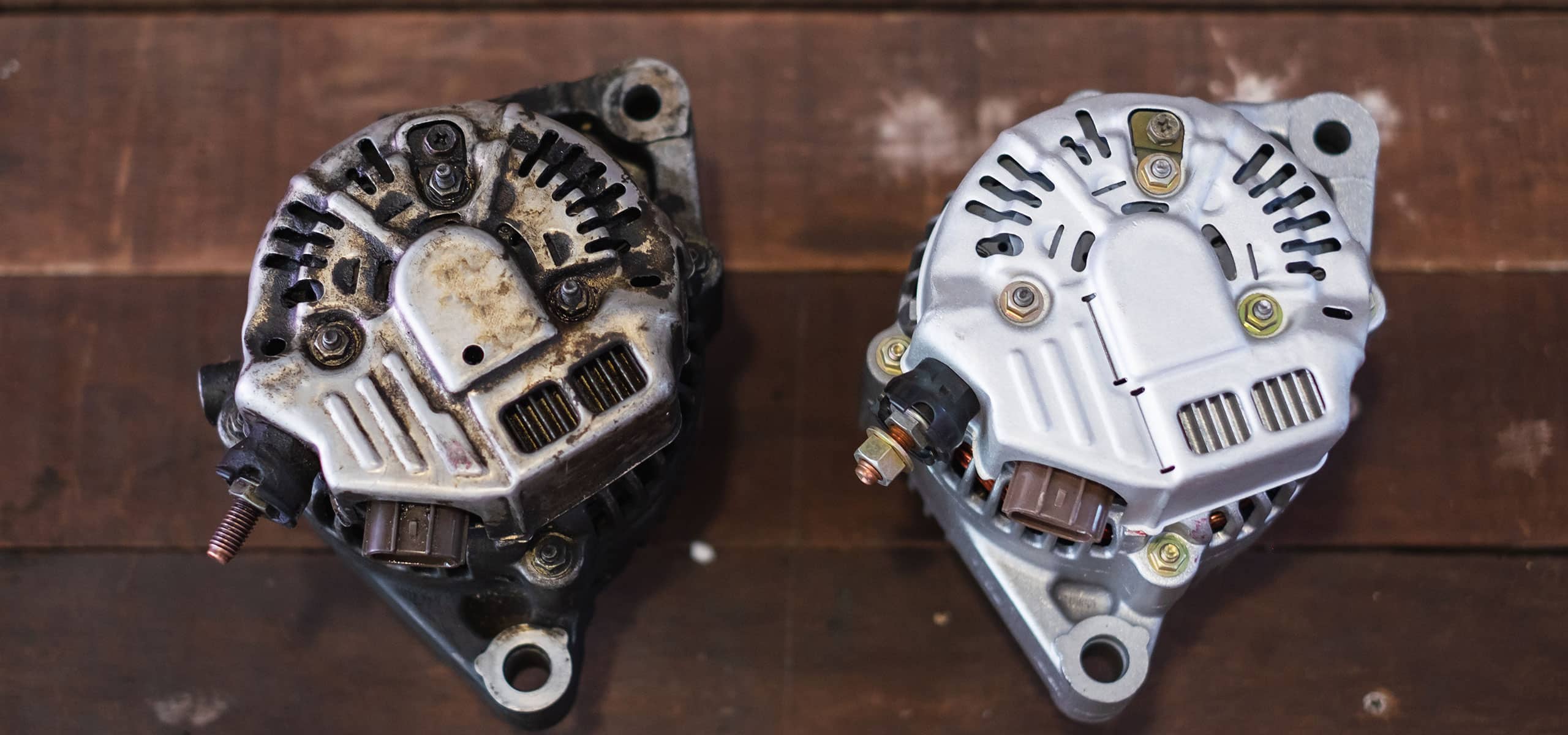
Average Costs for Alternator Replacement
When planning for an alternator replacement, understanding the potential cost range is crucial. On average, the cost to replace an alternator can range from AUS $200 to $1,200. This variation is influenced by several factors, including the condition of the alternator (whether it’s remanufactured, reconditioned, or new) and the type of vehicle you own. The following table provides a clearer breakdown of these costs, giving you a comprehensive overview to help in budgeting for this essential vehicle maintenance.
| Vehicle Type | Remanufactured Alternator Cost | Reconditioned Alternator Cost | New Alternator Cost |
| Compact and Mid-Range Cars | $200 – $400 | $350 – $600 | $500 – $700 |
| Luxury and Performance | $300 – $500 | $450 – $800 | $800 – $1,200+ |
Please note that these are estimated ranges and can vary based on specific vehicle models, local market rates and the service provider you choose. For the most accurate cost, it’s advisable to get a tailored quote for your vehicle.
DIY vs. Professional Replacement
Embarking on a DIY alternator replacement can be like setting sail into uncharted waters – it’s a journey filled with potential rewards and risks. For the seasoned DIYer, it’s an opportunity to save on labour costs and gain a deeper understanding of their vehicle. The satisfaction of a job well done, combined with the potential for cost savings, makes DIY an alluring choice.
However, the seas of DIY can be rough for the uninitiated. The complexity of modern vehicle systems means that replacing an alternator is no longer just a simple swap. It requires technical knowledge, the right tools and a keen awareness of safety risks. One misstep can lead to further damage or even personal injury.
In most cases, the safer harbor is found with professional help. Mechanics have the expertise, tools and experience to ensure the job is done correctly and safely. They can also diagnose underlying issues that might not be apparent to the DIY enthusiast. When it comes to something as critical as your vehicle’s electrical system, steering towards the expertise of a professional comes recommended as the wisest course.

Additional Alternator Replacement Costs to Consider:
When considering alternator replacement, it’s crucial to account for additional costs that may arise. These can significantly impact the total expense of the repair:
Drive Belts and Tensioners: Often, the replacement of the alternator necessitates changing the drive belts or tensioners. These parts can wear out over time and might need replacement to ensure optimal functioning of the new alternator.
Labour Costs: The complexity of your vehicle’s design may affect labour costs. Some vehicles require more time and effort to access and replace the alternator, leading to higher labour charges.
Diagnostic Fees: If your vehicle’s electrical issues are not straightforward, a diagnostic test may be required, which could add to the overall cost.
Warranty and Quality of Parts: Opting for parts with a warranty may cost more upfront but can save money in the long run.
It’s wise to budget for these additional expenses to avoid surprises during your alternator replacement process.
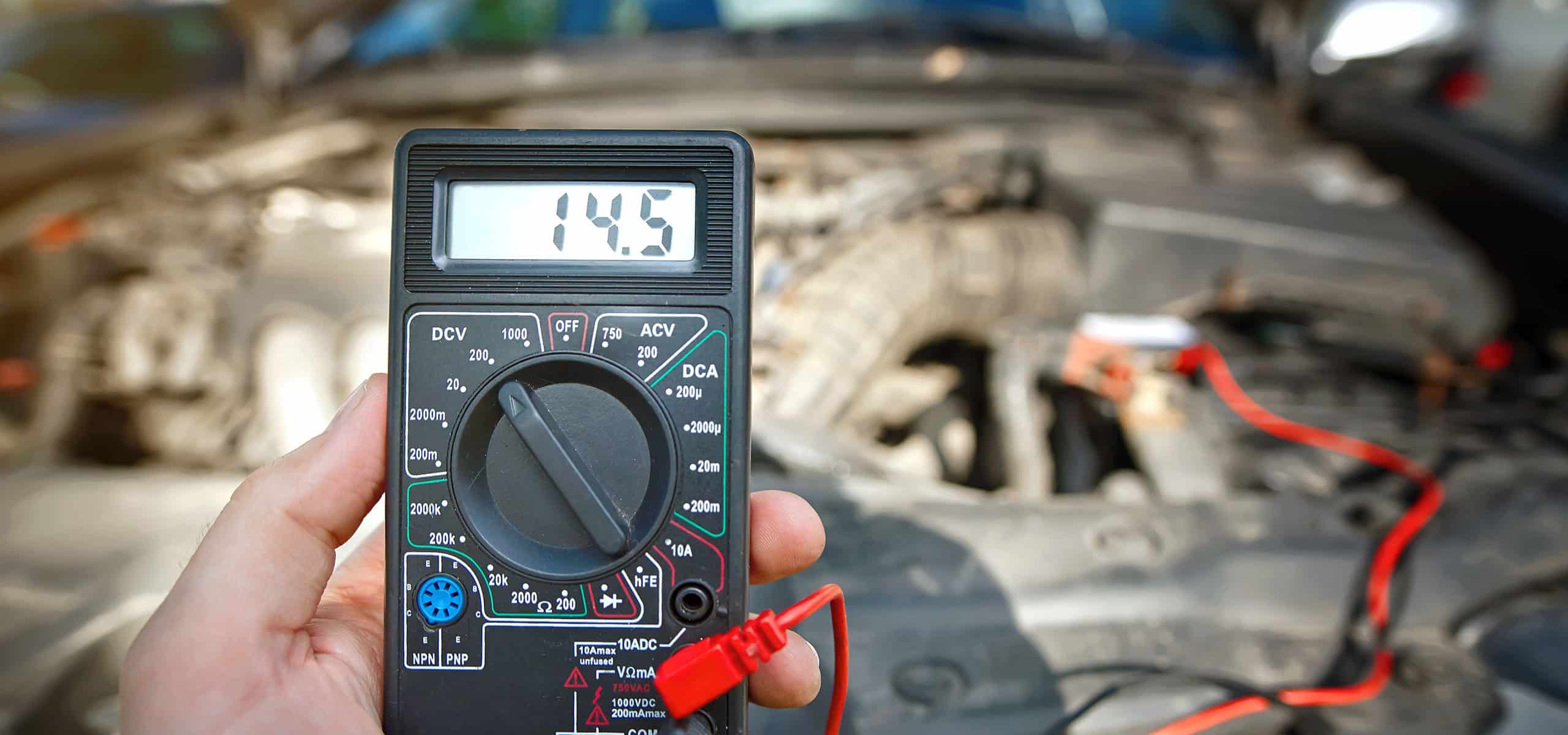
Consider a Battery Test Before Replacing Your Alternator
Before you commit to replacing your alternator, it’s wise to have your battery tested. This step is crucial because sometimes, what seems like an alternator issue might actually be a battery problem. A thorough battery test can help you avoid unnecessary expenses and ensure you’re addressing the right issue.
During a battery test, technicians will:
- Conduct a diagnostic check to evaluate the battery’s health.
- Examine electrical components to ensure they are receiving and distributing power correctly.
- Assess if the battery merely needs recharging or if it’s nearing the end of its life.
Just like diagnosing the root cause of a problem before addressing its symptoms, a battery test ensures you’re taking the correct approach. This process helps in making an informed decision, whether it’s a simple battery fix or a more complex alternator replacement.
Frequently Asked Questions On Alternator Replacement
Navigating the complexities of alternator issues can often lead to a plethora of questions. To assist in shedding light on this crucial component of your vehicle, we’ve compiled a list of frequently asked questions. These answers aim to provide clarity, guide your decision-making process, and ensure you’re equipped with the knowledge to handle alternator-related challenges effectively.
- How long does an alternator typically last?
Alternators generally last between 7 to 10 years, depending on usage and vehicle type. - Can a failing alternator drain my car’s battery?
Yes, a malfunctioning alternator can lead to a drained battery due to inadequate charging. - Is it safe to drive with a malfunctioning alternator?
In short, No. Driving with a faulty alternator is risky as it can lead to electrical failure or a dead battery while driving. - How can I distinguish between a battery and alternator issue?
Professional diagnostic tests are the best way to differentiate between battery and alternator problems. - Can alternator issues trigger the check engine light?
In many vehicles, alternator problems can cause the check engine light to come on. - Are aftermarket alternators a reliable option?
Aftermarket alternators can be dependable, but it’s essential to select a reputable brand and check for vehicle compatibility. - Will replacing the alternator improve my car’s performance?
Replacing a faulty alternator can enhance your vehicle’s overall performance and electrical system reliability. - Does Auto Stop provide warranties on alternator replacements?
Check Auto Stop’s service offerings on their website or contact them directly for warranty information. - What should I do if my car shows signs of alternator failure?
If you notice symptoms like dimming lights or electrical issues, it’s advisable to seek a professional assessment immediately. - How often should the alternator be checked or serviced?
Regular servicing, as per your vehicle’s maintenance schedule, typically includes checks on the alternator. However, seeking an expert’s opinion at the first sign of trouble is always prudent.
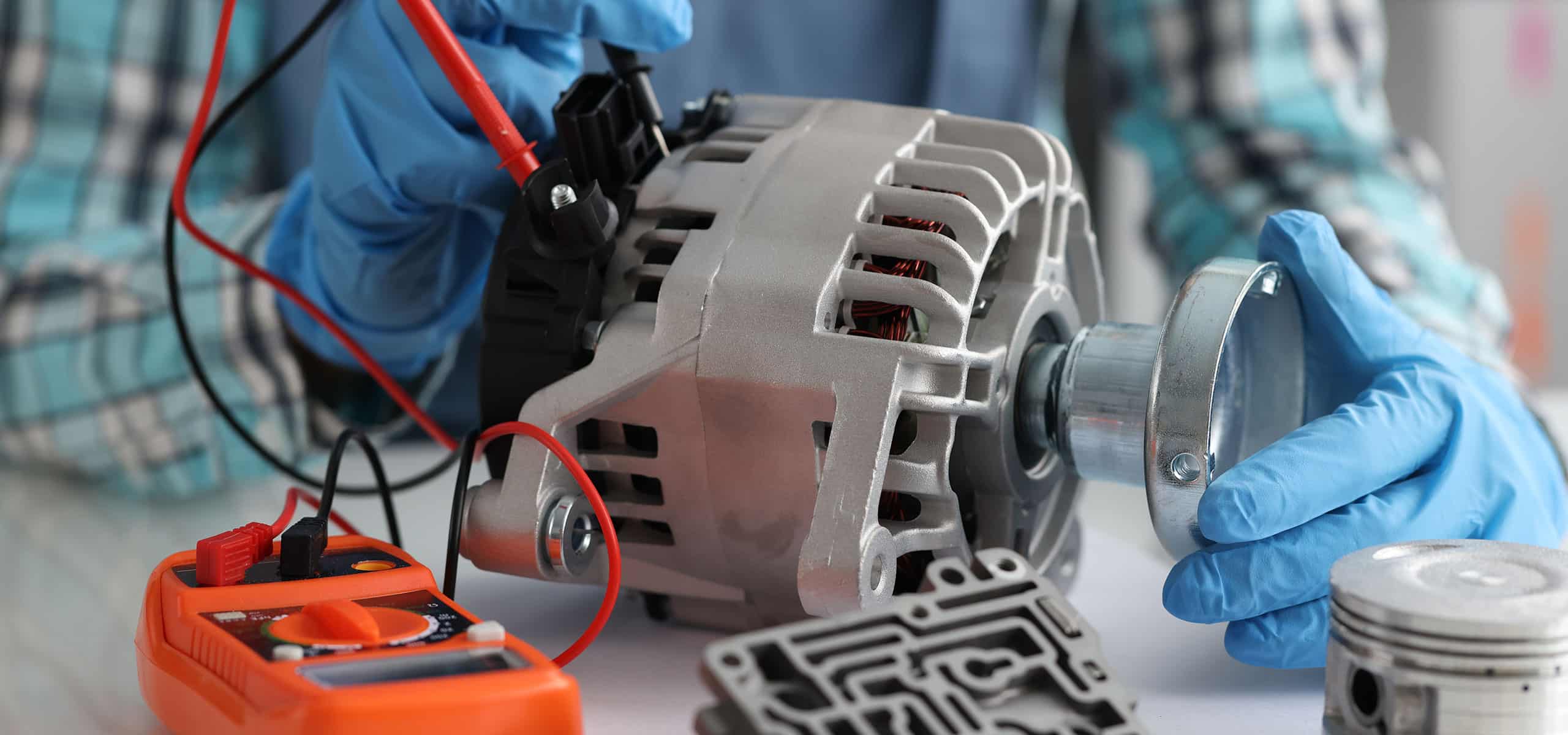
The Best Alternator Replacement Option In Brisbane & Gold Coast
When it comes to alternator replacement, you stand at a crossroads: the DIY path or the professional route. If you’re tech-savvy and equipped with tools, the DIY journey offers a sense of achievement and potential cost savings. However, it’s a road woven with complexities that require technical know-how.
On the other hand, opting for a professional means choosing peace of mind. Look for a mechanic who is transparent about costs, uses quality parts with warranties and has a wealth of experience. These experts can often foresee and solve issues that might puzzle even seasoned DIY enthusiasts.
In this landscape, Auto Stop emerges as a trusted solution. With years of industry experience and a deep understanding of alternator intricacies, they represent the choice for those who seek excellence and assurance in vehicle maintenance. For a thorough, high-quality service and the peace of mind that comes with expert handling, Auto Stop is your go-to destination in both Brisbane and Gold Coast.
Auto Stop are professionals in alternator replacement and repairs and we have a comprehensive service in both Brisbane and Gold Coast. Contact us for any alternator replacement or repair issues you may have, we’re here to help.


